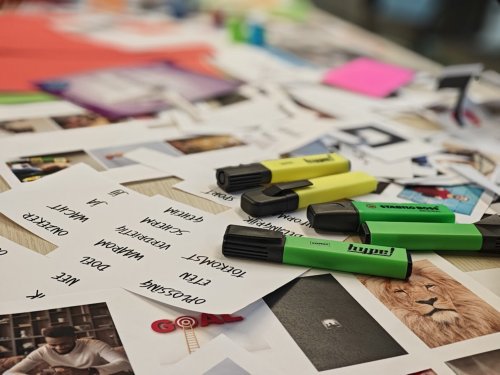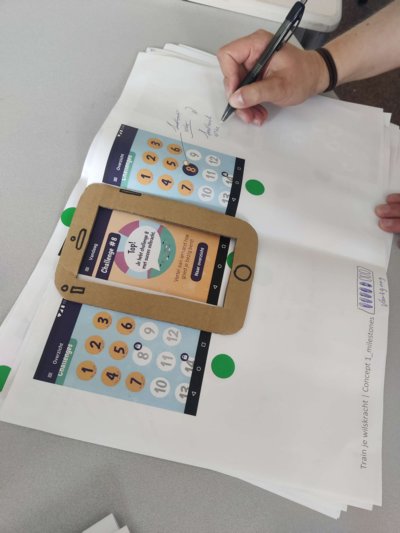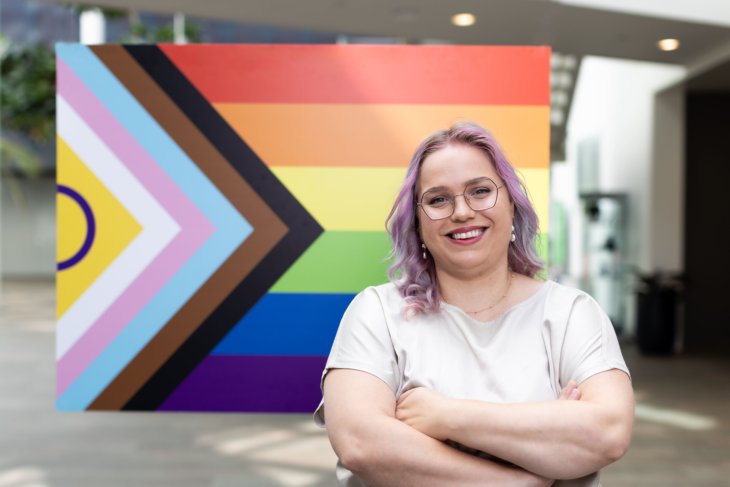Tessa Dekkers, assistant professor at the University of Twente, researches how digital care technology can contribute to the mental health of vulnerable groups, such as LGBTQ young people. Their research covers basically all innovative digital tools. "Think of apps, serious games, websites, but even virtual reality," they say. These technologies can improve the well-being of vulnerable groups, especially in the period when regular care is overloaded.
One promising approach is the 'experience sampling method', where young people receive short surveys multiple times a day via an app. How do you feel now? What happened? This not only provides valuable insights, but could also help young people to get a better grip on their emotions and patterns. "By gauging how things are going several times a day, it becomes much more manageable," says Dekkers.
Co-designing with the target group
Important in Dekkers' work is the collaboration with the target group. Together with the target group, they develop resources that really match their needs, wishes, and skills. Dekkers sees that this not only has an impact on the quality of the technology, but also on their self-confidence. "An app co-designed with the target group is not only more effective, but also helps them feel recognised and valued."
Jointly designing digital healthcare technology has been the common thread running through Dekkers' research from the start. As a PhD student, Dekkers developed profiles of and with elderly people undergoing surgery in order to achieve more personalised digital care, and as a postdoc he developed digital technology for forensic psychiatry. Two very different groups, but they also have overlap. Dekkers: "For example, it can be difficult for both the elderly and people who have limited freedom of movement in a psychiatric institution to use apps."

When healthcare falls short
What many vulnerable groups have in common anyway is that the care problems often come from two sides. "On the one hand, you already have a higher risk of health problems and on the other hand, many of the solutions offered do not fit in with your life. They don't take into account what you can do and what you need at that moment," says Dekkers. In the previous study with forensic psychiatric patients, for example, they indicated that the first draft of our app was far too focused on the individual, while they liked to work with their personal counsellor. They didn't like being on their own at all. If we hadn't found out so early, they would probably have ignored the final app.
In recent years, their research has focused on the social vulnerability of LGBTQ young people. Dekkers themself is involved in the LGBTQ community and notes that there are huge health differences in that target group compared to other groups: "An exploratory study of ours showed that three-quarters of LGBTQ young people suffer from anxiety symptoms," says Dekkers. By jointly developing digital technology, Dekkers tries to tackle these mental health problems.

About Tessa Dekkers
Dr. Tessa Dekkers is an assistant professor at the BMS faculty of the University of Twente. With a background in Industrial Design Engineering and Social and Health Psychology, their research focuses on equitable eHealth through co-design.




